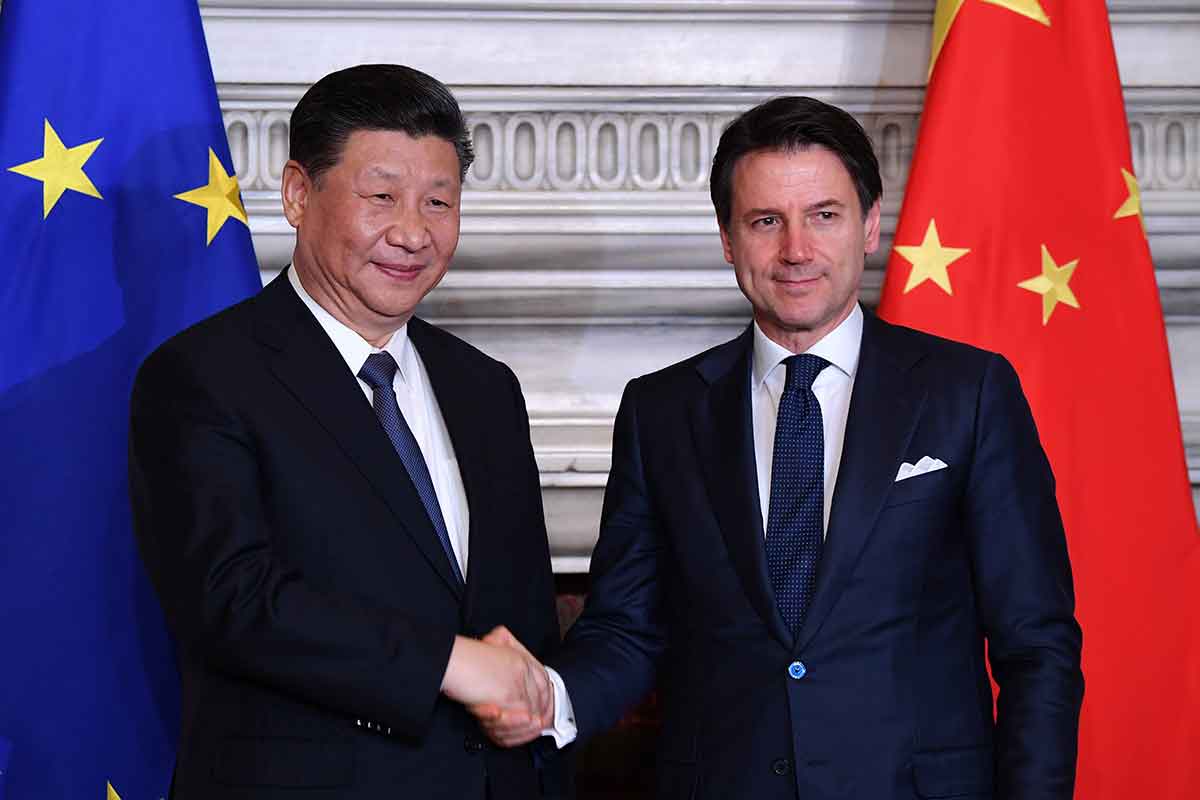The complicated, hot-and-cold relationship between Europe and China takes another turn this week, as several European Union (EU) leaders break ranks to attend the Belt and Road summit in Beijing.
The list of European leaders attending the showcase for China's global influence – held Thursday through Saturday – is dominated by eurosceptics and populists eager to vex Brussels, as well as countries hard-up for investments.
Giussepe Conte, head of Italy's coalition government, will headline the European contingent, with Hungary's firebrand Viktor Orban also taking a break from his virulent anti-EU campaigning at home to visit Beijing.
Austria's Sebastian Kurz, whose cabinet includes members of the far right, will make the trip, as will Greece's leftist Prime Minister Alexis Tsipras, whose country turned to China at the peak of the debt crisis when ties with the EU were at their worst and Athens desperate.
France and Germany and most EU states are sending only ministers to the summit, with diplomats behind the scenes quick to castigate those that weaken European unity against China.
Belt and Road "is a development that we didn't see coming," a senior EU diplomat admitted. "There's a big risk of complications between the member states."
Italy's 'middle finger'
The summit is the third time in a month that Europe and China must face their tricky relationship.
In March, President Xi Jinping, China's supreme leader, embarked on a tour of Europe with Italy's signing onto the Belt and Road as the centrepiece.
Italy was the first G7 nation to sign on to the Belt and Road Initiative (BRI), and infuriated Washington as well as much of the EU.
But China watchers, as well as diplomats and officials speaking on condition of anonymity, insisted that the importance of China's breakthrough in Italy should not be overblown.
"In Italy, it is more of a case of the coalition government in Rome giving the EU the middle finger," said Stephen Tsang, director of the China Institute at London's School for Oriental and African Studies (SOAS).
"If an individual member state wants to take advantage of BRI to put pressure on the EU or other member states, Beijing is very happy to do that," he said.
Italy's red carpet for Xi – who also visited President Emmanuel Macron in France – was quickly followed by a visit to Europe by China's number two leader, Premier Li Keqiang.
During a stop in Brussels, EU officials claimed victory after Li accepted to sign a joint declaration pledging a more open economy after Europeans branded China a "systemic rival".
But then the premier stopped in Croatia for a so-called 17+1 summit, an economic platform for Beijing's BRI investments in 12 European Union states – now including Greece – and five Western Balkan countries.
The idea is to link the Chinese-owned Piraeus port to the heartland of Europe with infrastructure projects across the Balkans that will be largely delivered by Chinese companies and workers.
"Because these countries are poorer and are often treated as second-class Europeans by the likes of France and Germany," they welcome China, said Philippe Legrain, a former EU official now at the London School of Economics' European Institute.
However, "like the US Marshall Plan after World War II, the BRI also has a political dimension – namely, drawing Europe into China's sphere of influence," he said.
No 'Normandy landing'
But sceptics downplay the politics and see the BRI as mostly a ruse to export Chinese overcapacity.
"BRI is often seen as a beachhead of Chinese influence but it is not a Normandy landing, it's a discount coupon," said Hosuk Lee-Makiyama, director of the ECIPE Brussels thinktank.
This "has more in common with price dumping" than diplomacy, he said.
"China is saying we have a lot of cement and we have a lot of construction equipment and we have a lot of workers. We can actually build something for you," Lee-Makiyama said.
A top EU diplomat from a poorer European state said that funding from China came easier than aid from the EU.
"The upside is that a project finds funding even if it is overlooked by the IMF or EU agencies because it doesn't make sense to them," said Tsang, of London's SOAS.
But officials in Brussels insisted that they are no longer naive on China.
"We will not do with Italy what we did with Greece," a European diplomat said, referring to the takeover of the port of Piraeus.
"We had an openness towards China that we no longer have," he added.
Despite the splits, the EU can unite and annoy Beijing.
Two years ago, at the last BRI summit, many EU states gathered forces and refused to sign a Chinese statement on trade, handing a rare public rebuke to President Xi. - AFP
